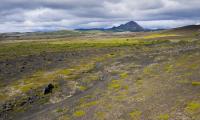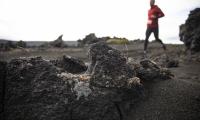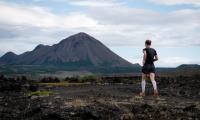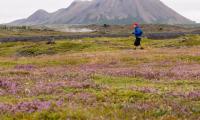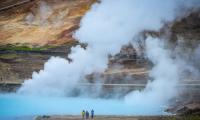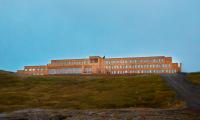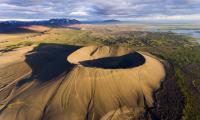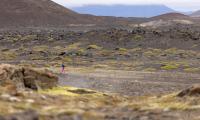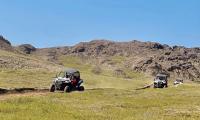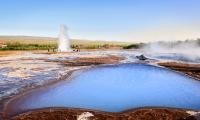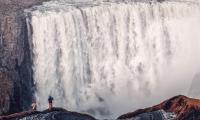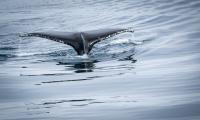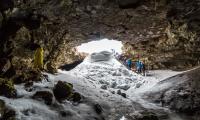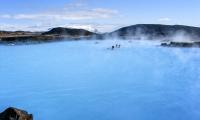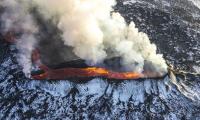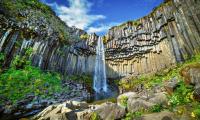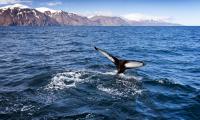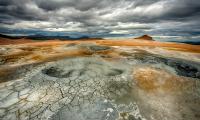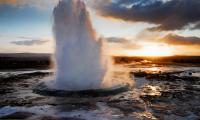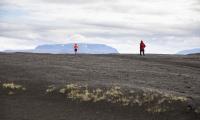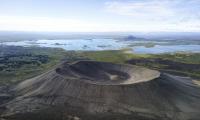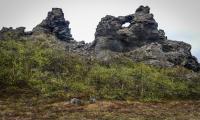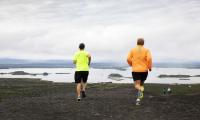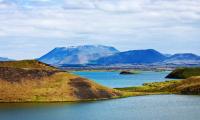Destination Guide
If you do not find the answer you're seeking, feel free to contact us with your question.
LanguageIcelandic |
Capital CityReykjavík |
Inhabitants360.000 |
ReligionProtestant (Lutheran) |
CurrencyIcelandic Króna (ISK) |
Area103.000 sq. km. |
Special Dietary Requirements
We understand that allergies and special diets are a common concern among our guests. We do our very best to accommodate any diet for medical, allergy or religious needs; however, we cannot guarantee that all dining establishments can fulfill special requests. As a result, we encourage our guests to take all necessary precautions during their travel.
Guests with special dietary requirements should inform their server upon arriving at the location. To facilitate this, we strongly recommend bringing a description of your dietary needs which has been translated into the local language. When present, your Albatros tour leader can also help inform local eateries of any special requests.
If you require a special diet during your travel, please inform us.
Please note: This information must be received no later than 45 days before your tour begins.
Environmental Etiquette
The environment in Iceland is extremely fragile. The influx of tourism over the past decade has seen the ecosystems around the country rapidly degrade, as well as plastic pollution skyrocket. The unique nature that draws people to Iceland is also very sensitive, and can be easily harmed by people not respecting this. For example, the Icelandic moss is beautiful and soft, but once it is picked up it takes centuries to regrow and the soil erosion can contaminate surrounding areas. Please respect the delicate nature of the ecosystems and do not hike off-trail or drive off-road, dispose of your waste properly, and leave no trace behind.
Visitors should also note that – unlike places in, for example, the United States – Iceland will generally not fence off dangerous areas with barriers or ropes. Your safety depends upon your common sense and ability to travel responsibly. If you travel independently from the Albatros group, make sure you respect the weather and the waves, don’t wander near the edge of a waterfall, and don’t attempt to walk on a glacier without either the necessary knowledge or a guide/ropes.
What to Pack?
As any Nordic mother will tell you, "there's no such thing as bad weather - only bad clothing." Iceland’s weather is notoriously fickle and is subject to abrupt and dramatic changes. The key? Layers, layers, and more layers. The weather is more likely than not to be chilly and windy, so wind protection and a good sweater are necessary. One also gets the feeling that it might rain at any moment in Iceland, so a shell jacket/pants would be helpful if you plan to spend much time outside during your stay. Also, don’t forget a swimsuit for the geothermal baths!
In terms of shoes, Iceland has an unbelievable amount of amazing hiking trails. A sturdy boot will get you far, especially if you intend to scramble up a bit closer to some of the waterfalls. For the marathon itself, normal running shoes will suffice, but if you have trail running shoes then it is a good opportunity to put them to use.
Electricity
Iceland can be considered a standard European country in terms of electricity. The standard voltage is 220V and the frequency is 50Hz. If the outlet voltage in your country is between 220-240V, you should be fine. However, if it is range of 100-127V (which is common in the US, Canada, and countries in South America), you might need a voltage converter in Iceland. Please note that power plug adapters only convert plug types and do not convert voltages.
The power sockets are usually two-pronged Type F. This type of socket is known as “Schuko,” and is compatible with plugs C and E.
If you are bringing a laptop or similar portable device to Iceland, be sure to check the labeling on the power pack. It should describe the amount of voltage your device can handle, and if a voltage converter is required.
Telephone & Internet
The international calling code for Iceland is +354. Please note that service is not available in more remote areas of the island and may be generally spotty outside of cities. Wi-Fi is common and easily accessible in most bars and cafes and most hotels offer it for free.
Drinking Water
Iceland has some of the cleanest drinking water in the world. The water comes either from deep wells or springs, and can be drunk directly from any tap. Visitors will also notice when hiking that most people just carry a cup instead of a heavy water bladder – fill your cup in one of the countless cold, flowing streams and stay hydrated!
Tipping Guidelines
Tipping is included in the service price in Iceland. As such, it is not expected that you leave any further tip after paying the bill. If you feel inclined to do so anyway, it is likely to be received graciously (and perhaps with some surprise).
Currency and Daily Expenses
Iceland’s currency is the Icelandic króna, ISK. Cash is rarely utilized. Instead, most major credit and debit cards are used (even for small purchases), although note that a PIN is usually required. If you do want to use cash or have any as a back-up, there are ATMs in Reykjavík, Akureyri, Husavík, Mývatn, etc.
Keep in mind that price levels in Iceland are quite high, particularly with regards to alcohol and restaurants. It is certainly possible to keep costs low in Iceland, especially as the tour package already covers a large part of the costs – but remember that the country consistently ranks among the most expensive countries.
Language
Icelandic is the official language of Iceland. Virtually everyone on the island speaks some level of English, and most people speak it very well. Icelandic is a Norse language, but it is not mutually intelligible with continental Scandinavian languages. Alongside English, Danish is a mandatory second-language study for all primary and many secondary schools.
Passport & Visas
Please note that it is each traveler’s responsibility to check visa and passport requirements and ensure that they comply. Obtaining a passport and, if required, a visa, is solely the responsibility of each traveler. Your passport must be valid for at least 6 months after returning from your destination.
If you hold a passport with a visa requirement to enter the Schengen, you must apply for a visa to visit Iceland. Please contact your local embassy for further details. We draw your attention to the fact that the processing of visa may take several weeks. The travel agency cannot be held responsible for travelers who, for whatever reason, may be denied entry at a border. Furthermore, the travel agency cannot be held responsible for the denial of visa prior to departure.
Medical Facilities
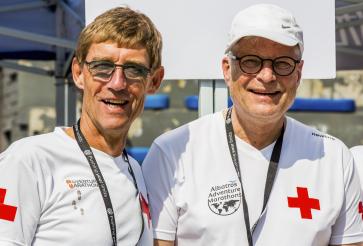
Please note that participants are responsible for their own travel insurance.
Medical assistance during the marathon event
A team of English-speaking Danish and Icelandic doctors and paramedics will be present during the race. The medical team is ready in case of injury or severe exhaustion.
Albatros Adventure Marathons™ will ensure that an English-speaking doctor/medical team is available for participants of our marathon events. If any treatment is unable to be carried out by the doctor and it is necessary to refer a participant to local medical facilities, the doctor/medical team and travel agency will not be held liable for any treatment carried out by staff from local medical facilities.

